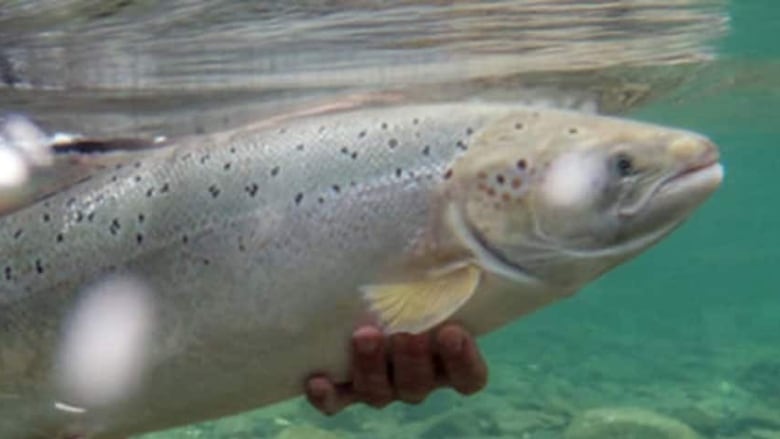New Nova Scotia aquaculture regulations rapped by Ecology Action Centre
Moratorium on new marine fish farms should remain, says Raymond Plourde

A second interest group has released a critical analysis of Nova Scotia's new aquaculture regulations, which were introduced in October by the province's Liberal government in an attempt to restore public trust in the industry.
The Ecology Action Centre, a Halifax-based environmental group, says the new rules fail to live up to the blueprint for reform laid out in an independent panel report chaired by Dalhousie University law professors Meinhard Doelle and William Lahey.
"It is our contention that a moratorium on new marine fish farms should remain in place," says Raymond Plourde of the Ecology Action Centre.
On the day the new regulations were unveiled, Nova Scotia Fisheries Minister Keith Colwell said the government will lift the moratorium early in the new year. It was imposed in 2013 by the previous NDP government amidst vocal opposition to aquaculture expansion in coastal communities.
The new regulations ignored a key recommendation in the December 2014 report from Doelle and Lahey. The report called for the introduction of red, yellow and green zones where finfish aquaculture would be permitted.
Instead, the minister of fisheries is given the authority to designate where sites will be permitted.
"The Doelle-Lahey report made it crystal clear that there are many places in Nova Scotia where finfish aquaculture is not suitable," says Plourde.
"The report specifically called for clear physical separation of fish farms from wild salmon rivers and areas that are either biophysically unsuitable or where pre-existing social or economic interests exist. There are no such protections for these important values in the new government regulations."
In a response to an earlier critique from an environmental law group, Colwell said the new regulations are some of the toughest in the world.
"I have the right to isolate any area I feel is not appropriate based on science," Colwell said.
Neither the Ecology Action Centre nor East Coast Environmental Law have condemned the new rules entirely.
The revamped rules introduce third-party auditing, enhanced reporting requirements, mandatory farm management plans and mandatory public notice and public hearings for some applications.
"The new regulations may be an improvement over what we had before, but this really is a case where the glass is still half empty," says Plourde.